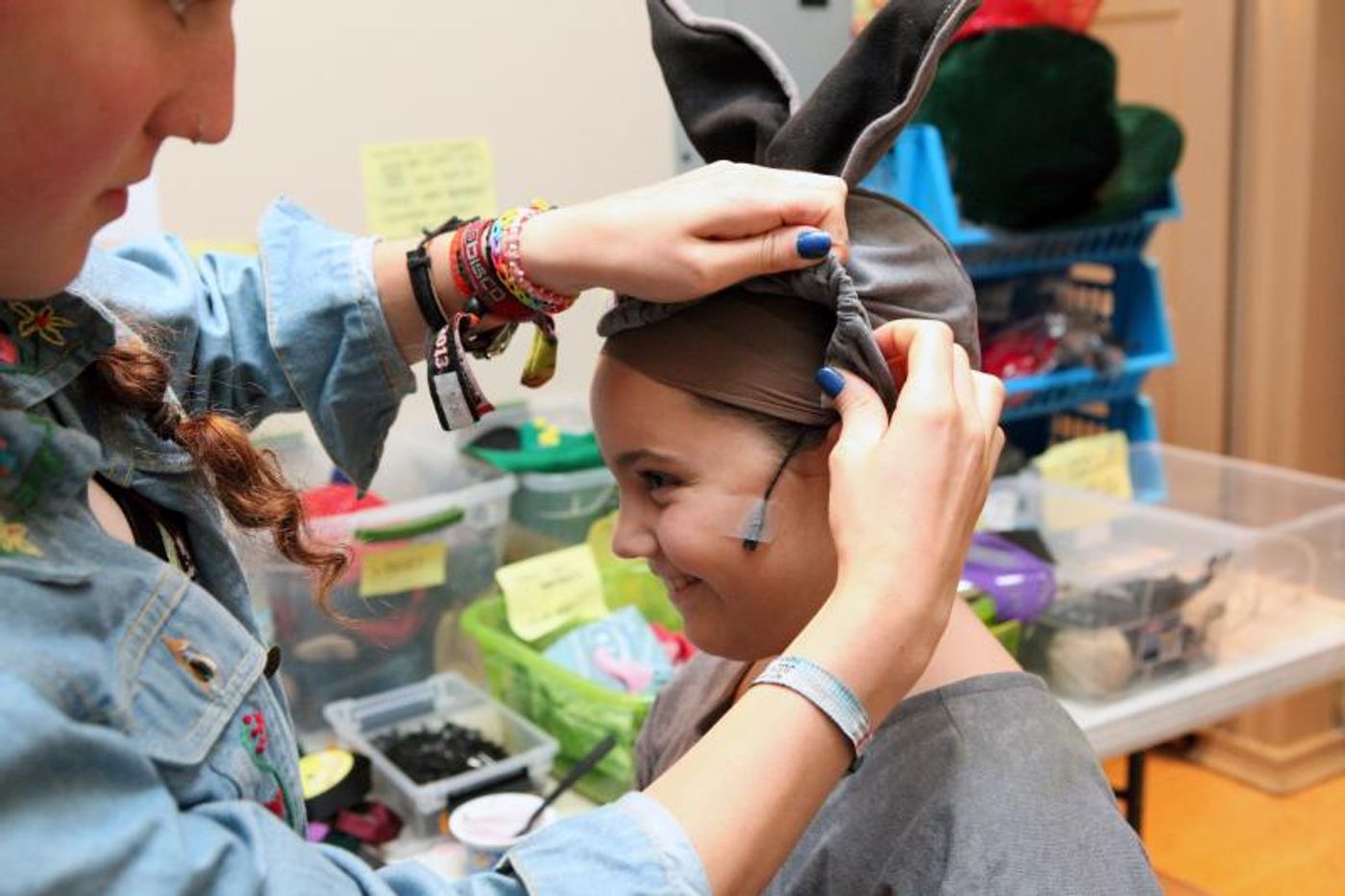Feature: Radio Frequency Sale Forces Small Theatre Co's to Shell Out Thousands for New Mics- Part 1
 We've got trouble, my friends, right here in small town America. And no one is talking about. It's an unfortunate fact that most Americans are well acquainted with the authority of big business, and once again its swept in and left its hefty bootprint this time on a number of local and regional theatres.
We've got trouble, my friends, right here in small town America. And no one is talking about. It's an unfortunate fact that most Americans are well acquainted with the authority of big business, and once again its swept in and left its hefty bootprint this time on a number of local and regional theatres.
The issue is complicated and comes down to frequency of wireless microphones. The FCC is responsible for regulating radio frequencies and in 2010, Congress gave them the go ahead to sell off certain frequencies. They chose a frequency that would support broadband communications and auctioned it off largely to T-Mobile who paid close to $8 billion dollars. The problem? That frequency was already in use. Most wireless microphones communicate on that particular frequency and suddenly T-Mobile came in and declared electronic eminent domain and staked their claim. Anyone using that frequency risked being fined or dealing with interference and interruption.
 David Zweig of Wired discovered this situation when his own children's theatre Random Farms Kids' Theater in Westchester sent out an e-blast pleading for help purchasing new microphones. Executive Director Anya Wallach spoke with BroadwayWorld about the experience and the frustrations she faced.
David Zweig of Wired discovered this situation when his own children's theatre Random Farms Kids' Theater in Westchester sent out an e-blast pleading for help purchasing new microphones. Executive Director Anya Wallach spoke with BroadwayWorld about the experience and the frustrations she faced.
"It's presented as 'oh this is so unfortunate' as opposed to 'well actually, you're getting screwed by the government and big business,'" she says. Random Farms faced costs of around $25,000 to replace their body mics and ensure each child could be heard on stage. "if one kid misses one solo it's devastating. Grandma's there from Florida, she flew in to hear her grandkid sing on stage for the first time, the cost is so high from an emotional investment standpoint."
The frequency takeover had technically been in the works since 2012, but didn't make a significant move until this year. Even then Random Farms was up against a deadline they couldn't figure out. "it was nerve-wracking because it was a moving target when the frequency would become illegal to use," Wallach says. "They kept changing the date. We had to pick what we felt could be the deadline even if they delayed again."
 Random Farms' rushed through the fundraising, and while they successfully gathered enough money, Wallach felt terribly guilty and frustrated at having to solicit donors for the cause. "these are donors I can't necessarily go back to right away when the next need comes up. Especially because we had to replace perfectly good equipment. I was grateful that everyone stepped up, but also frustrated that I had to ask them in the first place because that was money that could have helped our children's theatre in so many better ways to grow as opposed to spend all this money to just stay the same."
Random Farms' rushed through the fundraising, and while they successfully gathered enough money, Wallach felt terribly guilty and frustrated at having to solicit donors for the cause. "these are donors I can't necessarily go back to right away when the next need comes up. Especially because we had to replace perfectly good equipment. I was grateful that everyone stepped up, but also frustrated that I had to ask them in the first place because that was money that could have helped our children's theatre in so many better ways to grow as opposed to spend all this money to just stay the same."
The whole issue jeopardized Random Farms' programs of sending kids to hospitals to perform for patients and providing scholarships for low-income members. "I could have put 25,000 towards that," Wallach says, "but you can't do any of that if you can't hear. It had to take priority. That was what was so cruel about it, it made itself a priority."
There has been no recompense from T-Mobile and there's no sign any is coming. Wallach says it feels as though regional companies like Random Farms weren't even a part of the conversation saying, "we were such a low priority that we weren't even a priority at all. I haven't seen anything that responds to this at all. Only that it's going to be so great for T-Mobile customers." Ironically Wallach had applied to T-Mobile for a grant and was denied.

Equally worrying is the potential for this to happen again. Wallach explained that Random Farms had experienced this on a smaller scale before about six years ago and were jarred when it happened a second time. The company is trying to remain optimistic, but hope can only go so far. "I feel like this is the big one and we're okay for a while, but the lingering anxiety remains."
Get an in-depth look at the issue of frequency sales from David Zweig of Wired here.
Is your theatre company experiencing the same thing? Contact julie@broadwayworld.com for help spotlighting this issue.
Photos courtesy of Random Farms Kids' Theater
Videos


